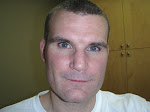"How far did you travel?"
The quote below can be found HERE and although it is a little long, in my opinion...this is why we love Algonquin...
Looking up, I saw another canoe approaching the
landing near where I had dropped my borrowed Duluth sack and "loose" gear. I was
stretching my body and mind before the paddle back to the links with the "other
world". Lost in thought, feeling the excitement of nearly completing my first
solo wilderness canoe trip, I don't remember my answer.I know now that I had traveled "farther" than at any other time in my life
but not because of the distance paddled and walked. While planning this trip I
must admit that the measurement of distance using rubber bands, string and a map
wheel was almost ritualistic. Yet by the time I reached that landing on my last
day, I no longer measured distance in miles or portage trails over which I had
to carry my canoe and gear from lake to lake or around rapids too difficult to
paddle.Each of us face life that is somehow defined for us by others or by other
factors. Sometimes those definitions are enhancements while at other times we
find ourselves confused by the ideas or limiting framework which others provide.
We often get drawn into a pace or a way of life which is detrimental to life
itself. Much of life for western society has become a rush. At times it is a
headlong rush toward an unclear horizon which shrouds any goal which may have
been seen at one time.While navigating white water stretches it often is necessary to position the
canoe with a "back ferry" or by paddling in such a way as to force the canoe to
go slower than the current. At times the proper positioning of the canoe is a
matter of determining to not give in to the urge to "rush" with the current.
When asked what was the most important piece of advice he could give,
mountaineer and wilderness preservation advocate Harvey Manning responded, "Slow
down."

No comments:
Post a Comment